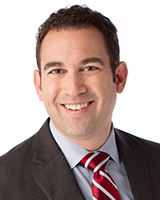Eko Devices gets FDA approval for smart stethoscope


SAN FRANCISCO (KGO) -- The stethoscope is one of the oldest tools in medicine, but now it is getting a high-tech upgrade. ABC7 News met the young entrepreneurs who just got the green light to start selling their smart stethoscope to doctors.
Cardiologist John Chorba showed us what looks like a regular stethoscope. He said, "In fact, this is a regular stethoscope. It just has the device attached to it."
The device is called Eko from Eko Devices. We've seen this device before at a conference a year and a half ago when a team of UC Berkeley students pitched it to a panel of judges.
It is simple to use. You set up the recording on a smartphone and then the device amplifies and records a patient's heart sounds. It stores the recording with the patient's electronic health record.
Jason Bellet, the Eko COO, explained the health record becomes like a living document of the patient's life from childhood to when they are a geriatric patient.
If something sounds funny, a doctor can send the recording to a cardiologist instead of sending the patient physically to them. The goal is to cut down cardiologists' and patients' time and money to go through the whole system. It's a worthy goal, but a tough one.
"Validating a product for the FDA is a very, very expensive and time consuming process. So raising that investment was critical for us," Eko CEO Conner Landgraf said.
And that's what brought them to the demo stage in early 2014. They faced tough questions, but walked away with the grand prize. They've since gotten $2.8 million in funding and now FDA approval.
For medical researchers, what's even more exciting is what could happen next, after they've made thousands of recordings over the course of long clinical studies.
"Being able to record so much data and tell us something new about heart sounds that we may not have known before," UCSF cardiologist John Chorba, M.D., said.
In time, that could make Eko smarter by recognizing heart problems the same way your phone knows what song is playing on the radio.
"We're trying to kind of go for the Shazam for heartbeats," said Eko CTO Tyler Crouch.




